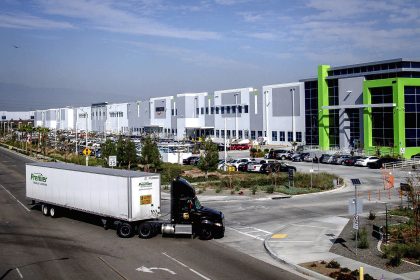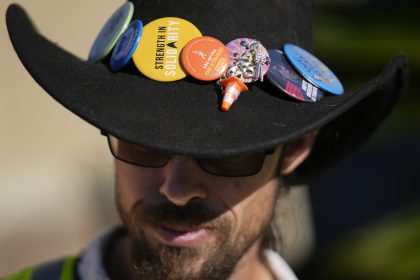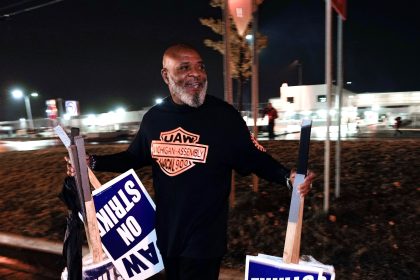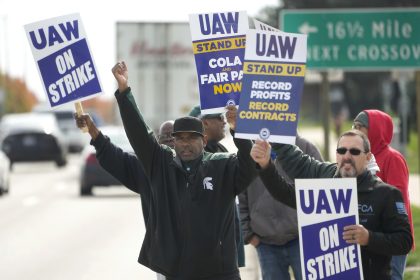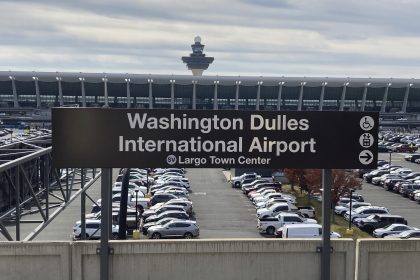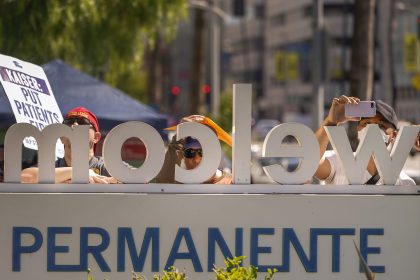Biden Calls Tentative Railway Deal ‘A Big Win for America’
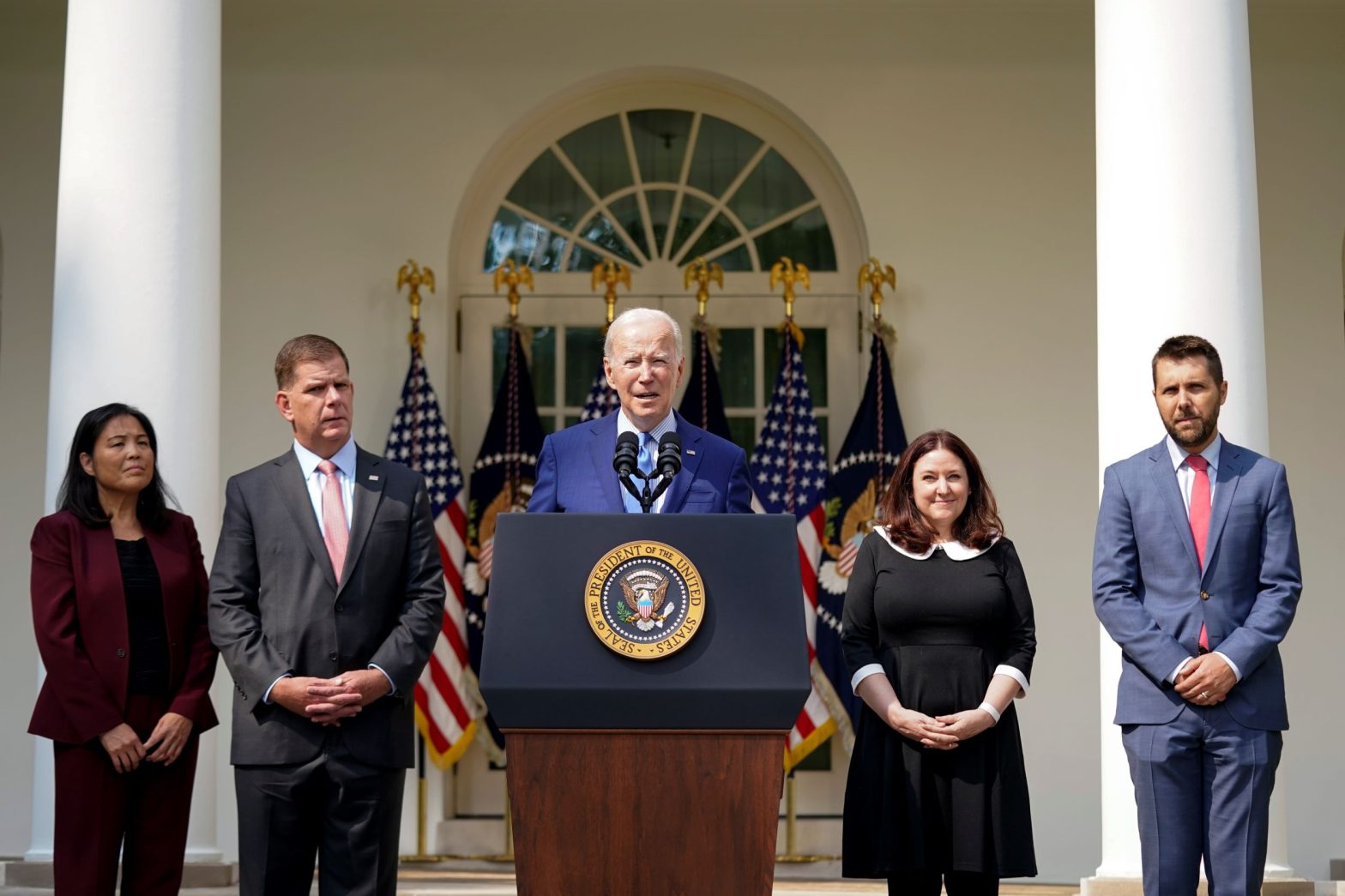
WASHINGTON — President Joe Biden made a last-minute addition to his public schedule on Thursday, inviting railroad and union leaders to the White House to celebrate their averting a nationwide strike that could have crippled the U.S. economy.
Many of those invited to the Oval Office and Rose Garden remarks by the president had yet to catch any sleep in the wake of 20 hours of intense negotiations shepherded by Labor Secretary Marty Walsh.
“This agreement is validation of what I’ve always believed, unions and management can work together — can work together — for the benefit of everyone,” Biden said as he stood alongside officials from the Department of Labor, Office of Management and Budget and the National Economic Council.
Calling the tentative agreement “a big win for America,” the president went on to say it was specifically “a big win for thousands of railroad workers … and their dignity.”
Biden himself was said to have played a key role in the negotiations, placing a call to negotiators at around 9 p.m. Wednesday night.
The two sides had just finished an Italian dinner that had been brought in so they could keep talking, and the president urged them to consider the harm that would be experienced by families, businesses, farmers and others if a shutdown were to occur at 12:01 a.m. Friday morning.
After the president spoke, the talks resumed in earnest and by 2 a.m. Thursday morning the tentative deal had been realized.
The five-year pact, retroactive to 2020, includes the 24% raises and $5,000 in bonuses that a Presidential Emergency Board recommended this summer.
Railroads also agreed to ease their strict attendance policies to address some of the unions’ concerns about working conditions. From now on, rail workers will be able to take unpaid days off for doctor’s appointments without being penalized under railroad attendance rules.
Previously, workers would lose points under the attendance systems that the BNSF and Union Pacific railways had adopted, and they could be disciplined if they lost all their points.
The change in the attendance rules was a major sticking point in the negotiations and a significant victory for the unions.
However, it’s still up to the unions’ rank and file members to decide if the deal is good enough to get their approval.
Union members are expected to vote on the tentative agreement after a post-ratification cooling off period of several weeks.
A number of the negotiators said they were pleasantly surprised to be invited to the White House at the conclusion of their talks, and even President Biden acknowledged “they should be home in bed.”
“Frankly, I’m surprised they’re still standing,” he joked.
Still, the president believed it was important to thank both business and labor for their efforts — and willingness — to broker a deal.
The threat of a nationwide freight rail strike came at a delicate time for the president and members of his party — just weeks ahead of crucial midterm elections that could define the remaining two years of his first term in the White House.
In recent weeks, momentum has been on the Democrats’ side, making it entirely possible the party will increase its hold on power in the Senate and maybe even pick up a few governors seats.
Had a strike occurred and the economy tank so close to people turning up at the polls, it’s entirely likely the party’s hold on Congress would have evaporated.
As Biden finished speaking and turned back toward the Oval Office, a reporter shouted a question about grocery prices being up “more than 13% this year.”
“Rail’s moving and it’s not going to go up,” Biden said as he waved to the crowd and headed through the office doors.
Dan can be reached at [email protected] and at https://twitter.com/DanMcCue.


















